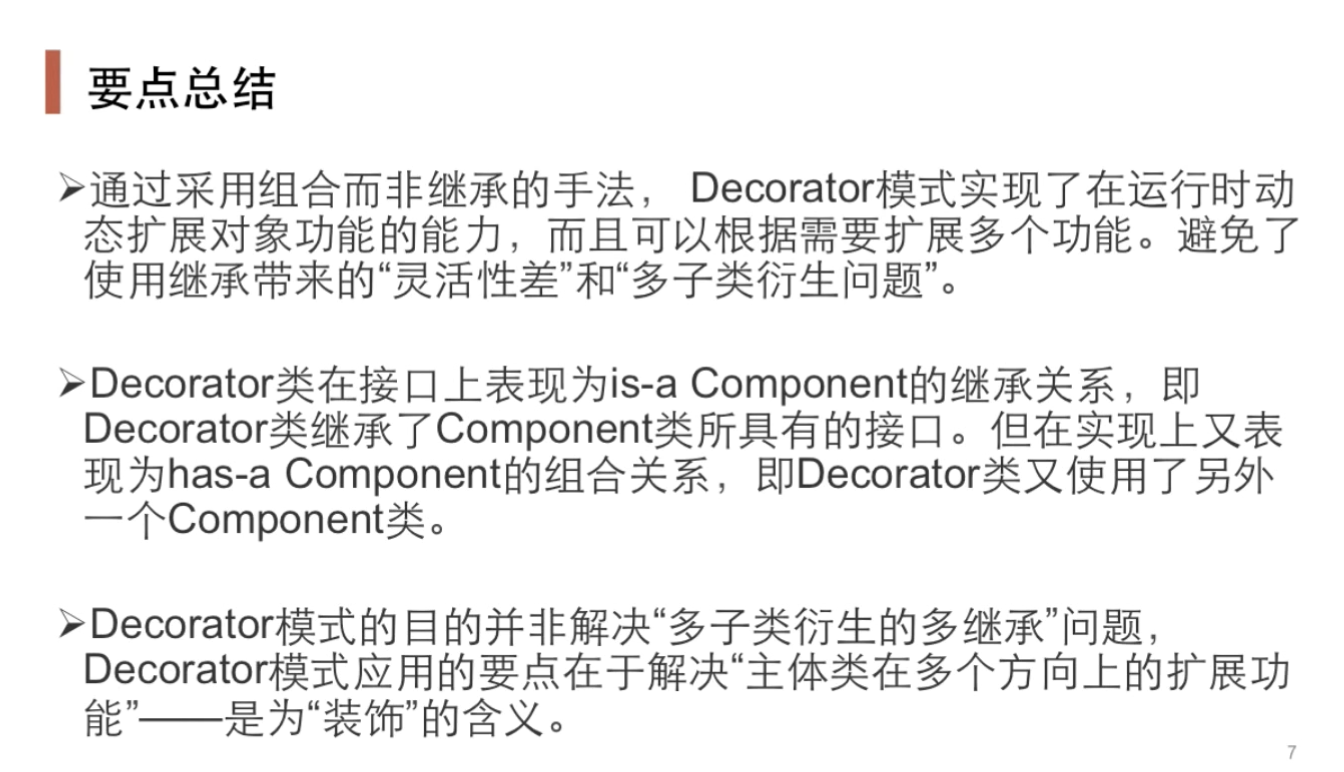brief introduction
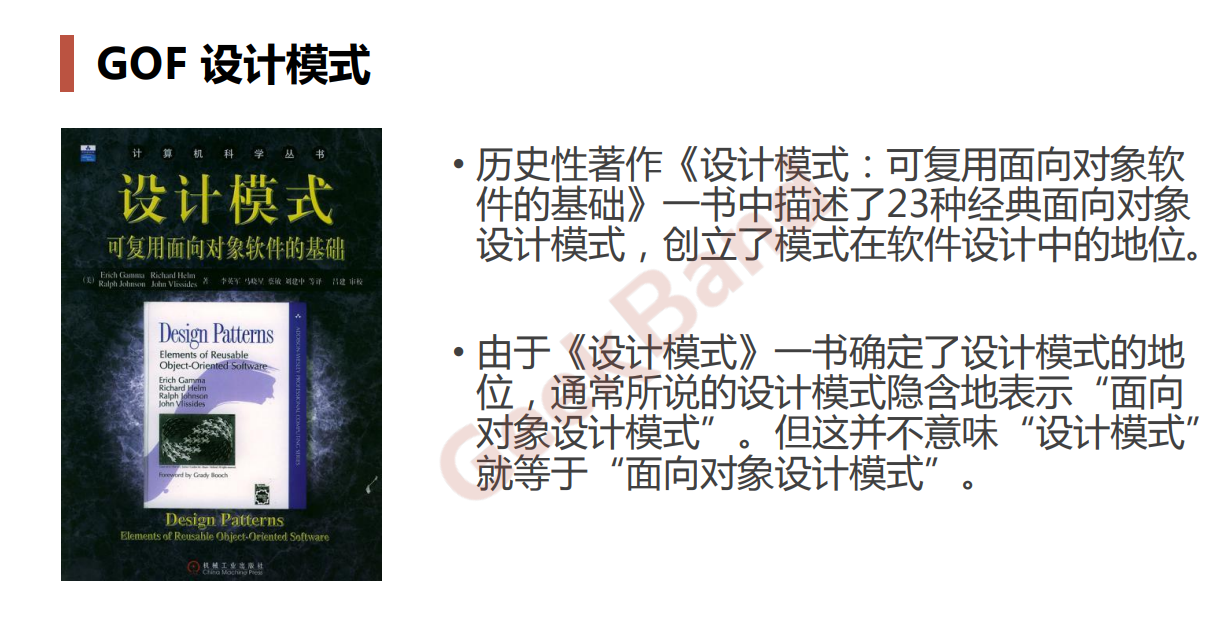


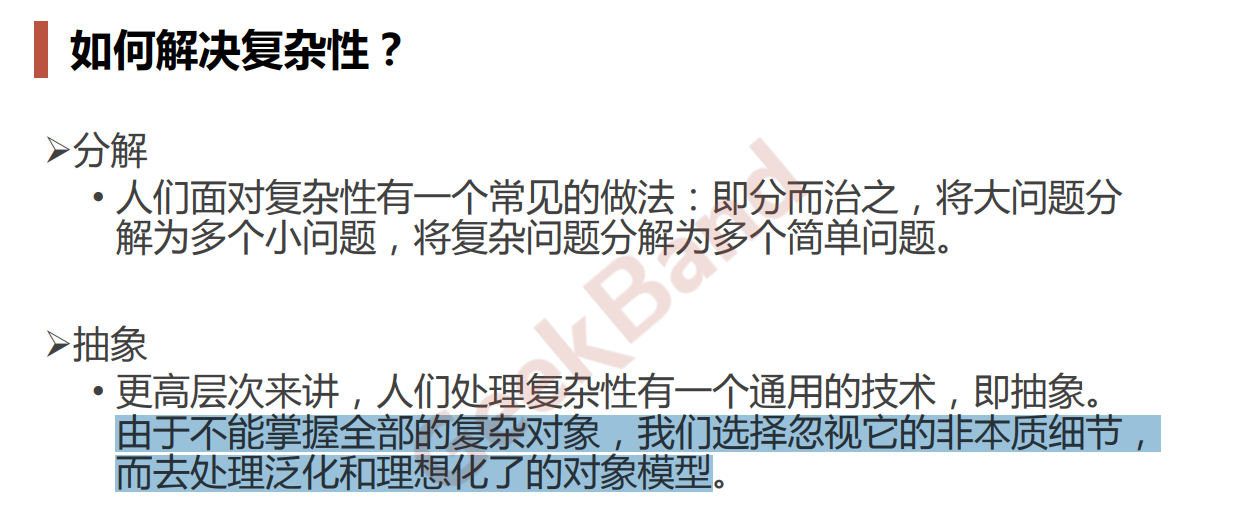
Take the following code as an example
1, Decompose
Shape.h
class Point{
public:
int x;
int y;
};
class Line{
public:
Point start;
Point end;
Line(const Point& start, const Point& end){
this->start = start;
this->end = end;
}
};
class Rect{
public:
Point leftUp;
int width;
int height;
Rect(const Point& leftUp, int width, int height){
this->leftUp = leftUp;
this->width = width;
this->height = height;
}
};
//increase
class Circle{
public:
point center;//center of a circle
int r;//radius
Circle(const Point& c, int r){
this->center = c;
this->r = r;
}
};
MainForm.cpp
//The pseudo code written here inherits the Form regardless of him
class MainForm : public Form {
private:
Point p1;
Point p2;
//change
vector<Line> lineVector;
vector<Rect> rectVector;
//Add circle
vector<Circle> circleVector;
public:
MainForm(){
//...
}
protected:
virtual void OnMouseDown(const MouseEventArgs& e);
virtual void OnMouseUp(const MouseEventArgs& e);
virtual void OnPaint(const PaintEventArgs& e);
};
void MainForm::OnMouseDown(const MouseEventArgs& e){
p1.x = e.X;
p1.y = e.Y;
//...
Form::OnMouseDown(e);
}
void MainForm::OnMouseUp(const MouseEventArgs& e){
p2.x = e.X;
p2.y = e.Y;
if (rdoLine.Checked){
Line line(p1, p2);
lineVector.push_back(line);
}
else if (rdoRect.Checked){
int width = abs(p2.x - p1.x);
int height = abs(p2.y - p1.y);
Rect rect(p1, width, height);
rectVector.push_back(rect);
}
//increase
else if (rdoCircle.Checked){
Point center=p1;
int r=sqrt((p2.x-p1.x)*(p2.x-p1.x) + (p2.y-p1.y)*(p2.y-p1.y));
Circle circle(center,r);
circleVector.push_back(circle);
}
//...
this->Refresh();
Form::OnMouseUp(e);
}
void MainForm::OnPaint(const PaintEventArgs& e){
//Draw a line
for (int i = 0; i < lineVector.size(); i++){
e.Graphics.DrawLine(Pens.Red,
lineVector[i].start.x,
lineVector[i].start.y,
lineVector[i].end.x,
lineVector[i].end.y);
}
//Draw matrix
for (int i = 0; i < rectVector.size(); i++){
e.Graphics.DrawRectangle(Pens.Red,
rectVector[i].leftUp,
rectVector[i].width,
rectVector[i].height);
}
//Hate to add
//Draw a circle
for (int i = 0; i < circleVector.size(); i++){
e.Graphics.DrawCircle(Pens.Red,
circleVector[i].center,
circleVector[i].r );
}
//...
Form::OnPaint(e);
}
2, Abstract
Shape.h
Using polymorphic mechanism
class Shape{
public:
virtual void Draw(const Graphics& g)=0;
virtual ~Shape() { }
};
class Point{
public:
int x;
int y;
};
class Line: public Shape{
public:
Point start;
Point end;
Line(const Point& start, const Point& end){
this->start = start;
this->end = end;
}
//Realize your own Draw and be responsible for drawing yourself
virtual void Draw(const Graphics& g){
g.DrawLine(Pens.Red,
start.x, start.y,end.x, end.y);
}
};
class Rect: public Shape{
public:
Point leftUp;
int width;
int height;
Rect(const Point& leftUp, int width, int height){
this->leftUp = leftUp;
this->width = width;
this->height = height;
}
//Realize your own Draw and be responsible for drawing yourself
virtual void Draw(const Graphics& g){
g.DrawRectangle(Pens.Red,
leftUp,width,height);
}
};
//Add data structure of circle
class Circle : public Shape{
public:
point center;//center of a circle
int r;//radius
Circle(const Point& c, int r){
this->center = c;
this->r = r;
}
//Realize your own Draw and be responsible for drawing yourself
virtual void Draw(const Graphics& g){
g.DrawCircle(Pens.Red,
center,r);
}
};
MainForm.cpp
class MainForm : public Form {
private:
Point p1;
Point p2;
//Unified processing for all shapes
vector<Shape*> shapeVector;// The shape * pointer is a dynamic mechanism
public:
MainForm(){
//...
}
protected:
virtual void OnMouseDown(const MouseEventArgs& e);
virtual void OnMouseUp(const MouseEventArgs& e);
virtual void OnPaint(const PaintEventArgs& e);
};
void MainForm::OnMouseDown(const MouseEventArgs& e){
p1.x = e.X;
p1.y = e.Y;
//...
Form::OnMouseDown(e);
}
void MainForm::OnMouseUp(const MouseEventArgs& e){
p2.x = e.X;
p2.y = e.Y;
if (rdoLine.Checked){
shapeVector.push_back(new Line(p1,p2));// new a heap pointer
}
else if (rdoRect.Checked){
int width = abs(p2.x - p1.x);
int height = abs(p2.y - p1.y);
shapeVector.push_back(new Rect(p1, width, height));
}
//increase
else if (...){
Point center=p1;
int r=sqrt((p2.x-p1.x)*(p2.x-p1.x) + (p2.y-p1.y)*(p2.y-p1.y));
Circle circle(center,r);
shapeVector.push_back(circle);
}
//...
this->Refresh();
Form::OnMouseUp(e);
}
void MainForm::OnPaint(const PaintEventArgs& e){
for (int i = 0; i < shapeVector.size(); i++){
shapeVector[i]->Draw(e.Graphics); //Polymorphic calls, each taking its own responsibility. Line calls line's Draw and Rect calls Rect's Draw
}
//...
Form::OnPaint(e);
}
Object oriented design principles
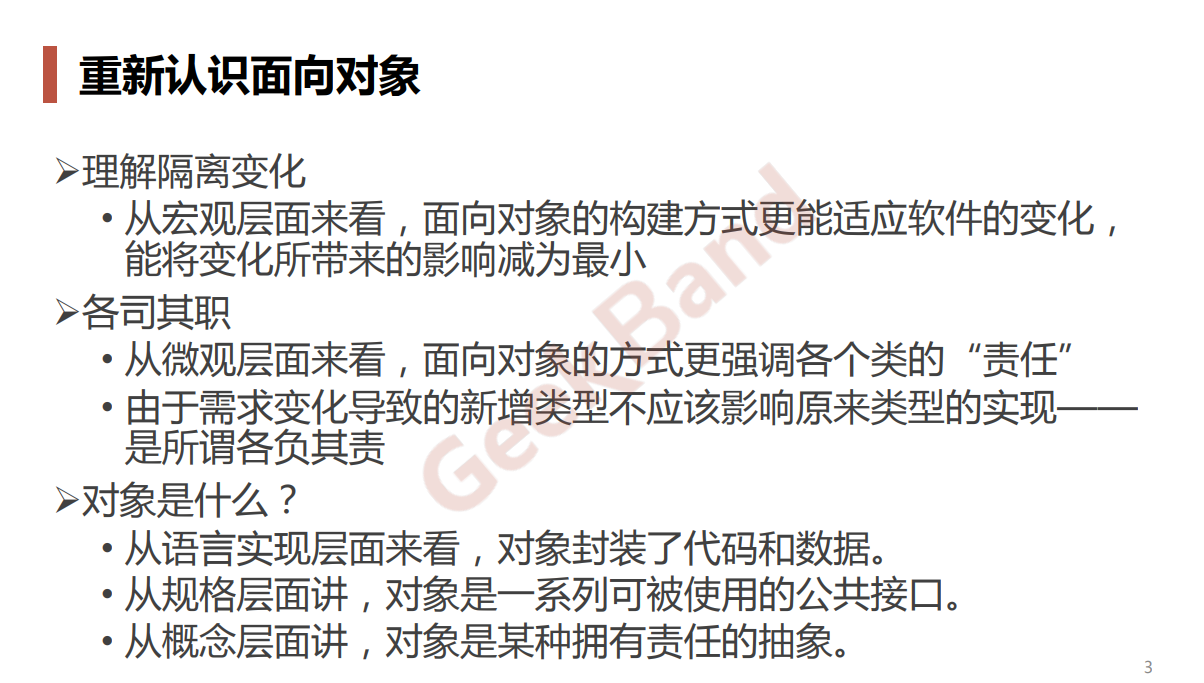
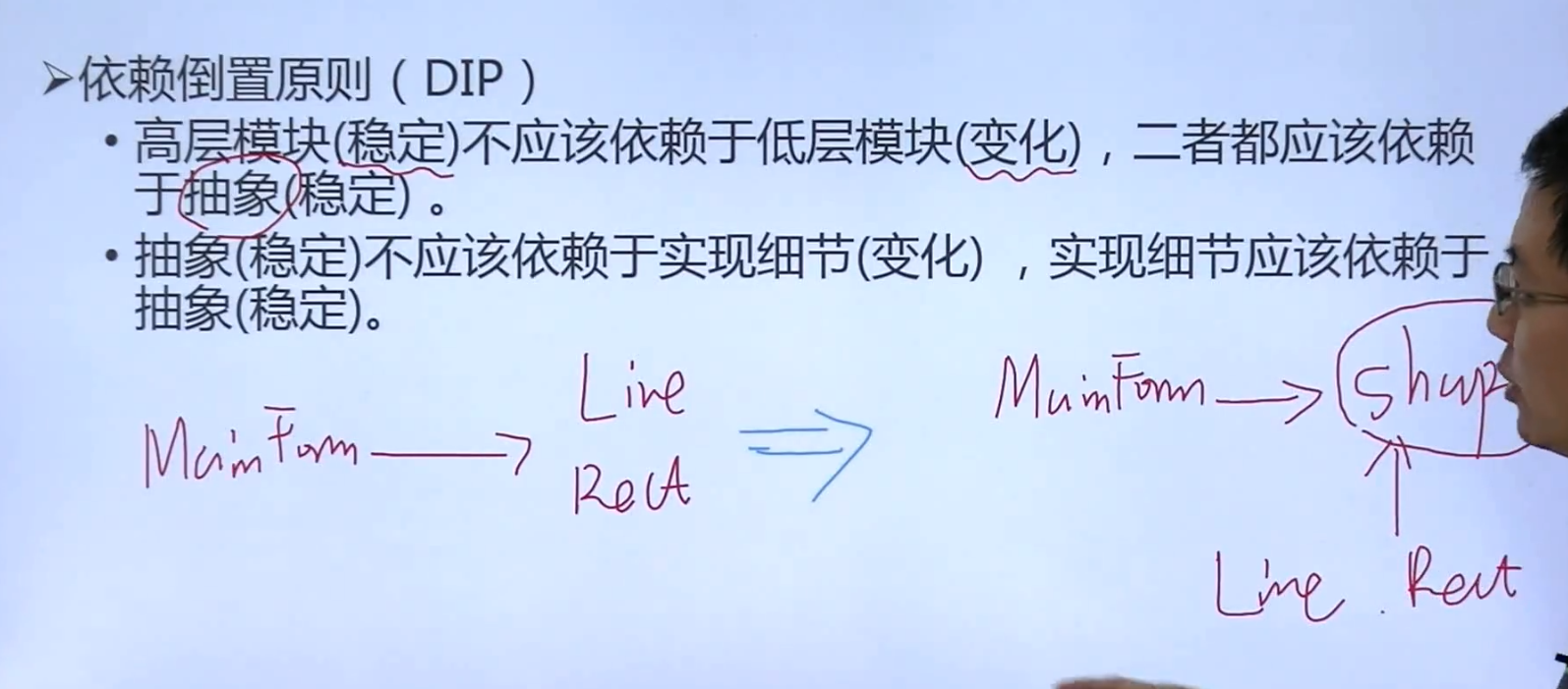

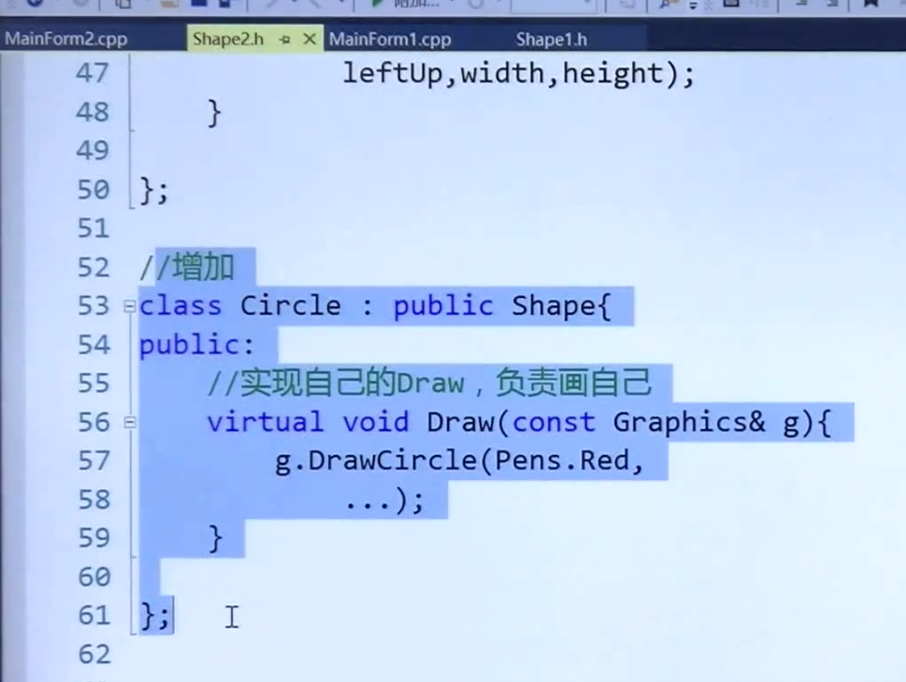
This is actually an extension

A class cannot point randomly

The subclass inherits the parent class. There must be a reason

Don't publish unnecessary methods. If only subclasses are used, it is protected. If this class is used, it is private

Object combination, for example, a class b is placed in class a
If the coupling between the inheritance subclass and the parent class is too high, the parent class exposes too many things to the child class

Package change point side stable

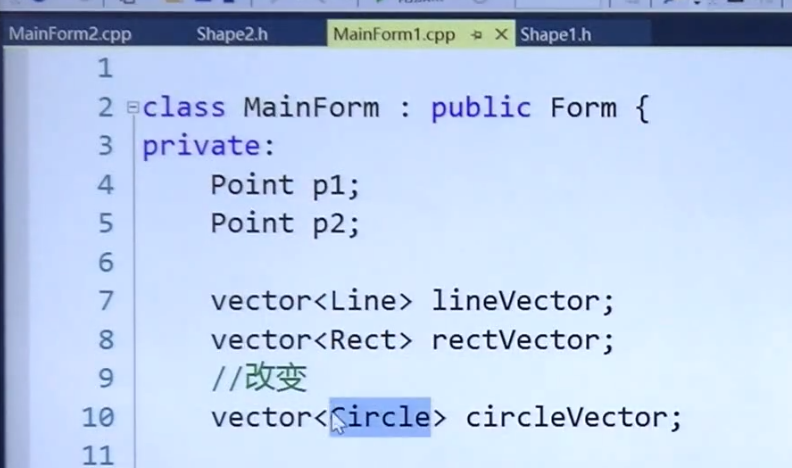
Here is the specific type, which violates the object-oriented principle
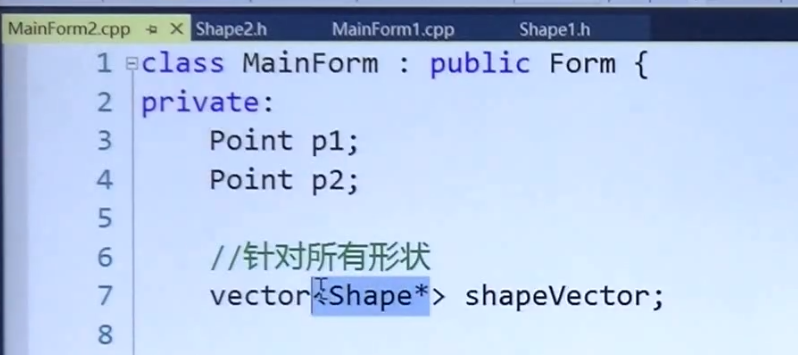

This is to give an abstract interface, which conforms to the principle.


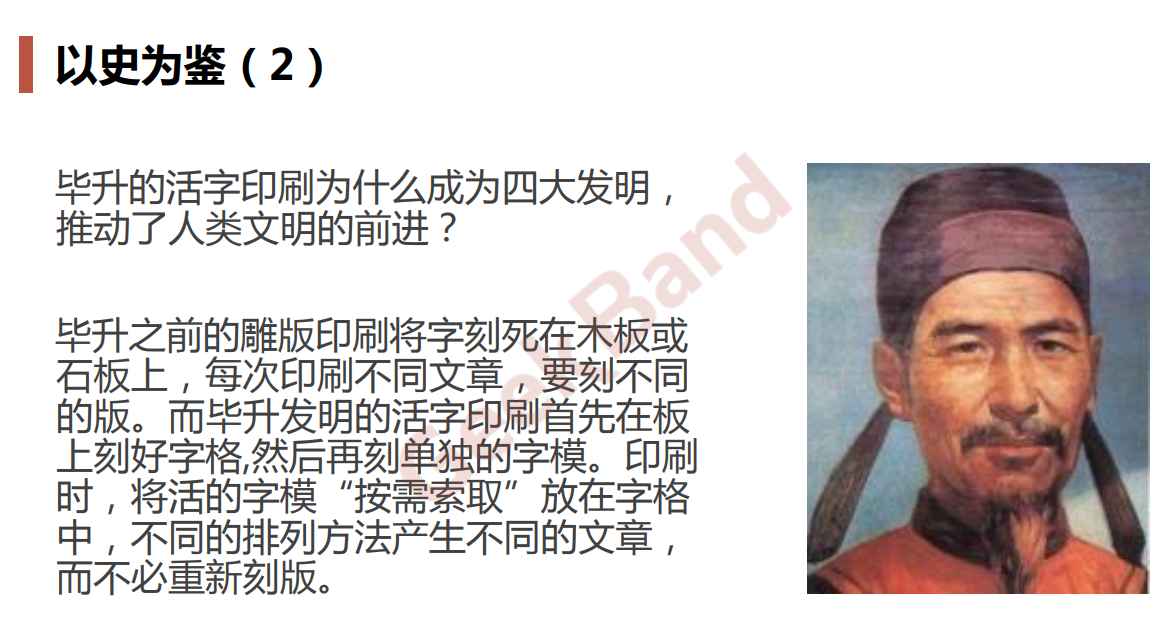
In fact, the design of software is also based on the principles of other industries!!!
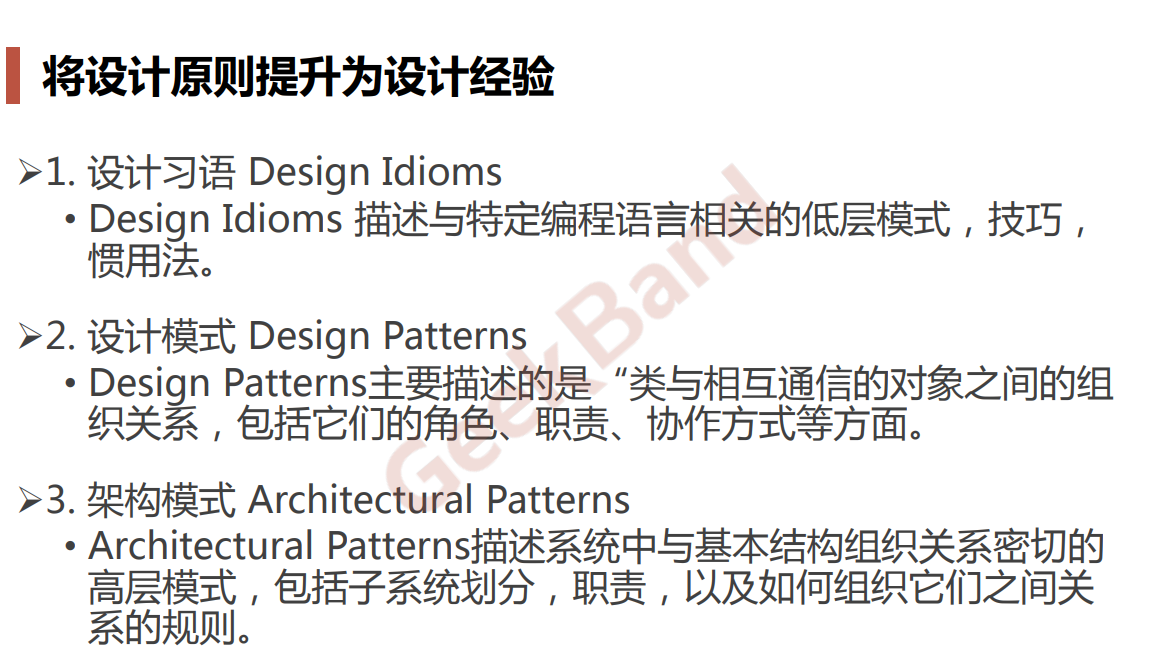
Template Method
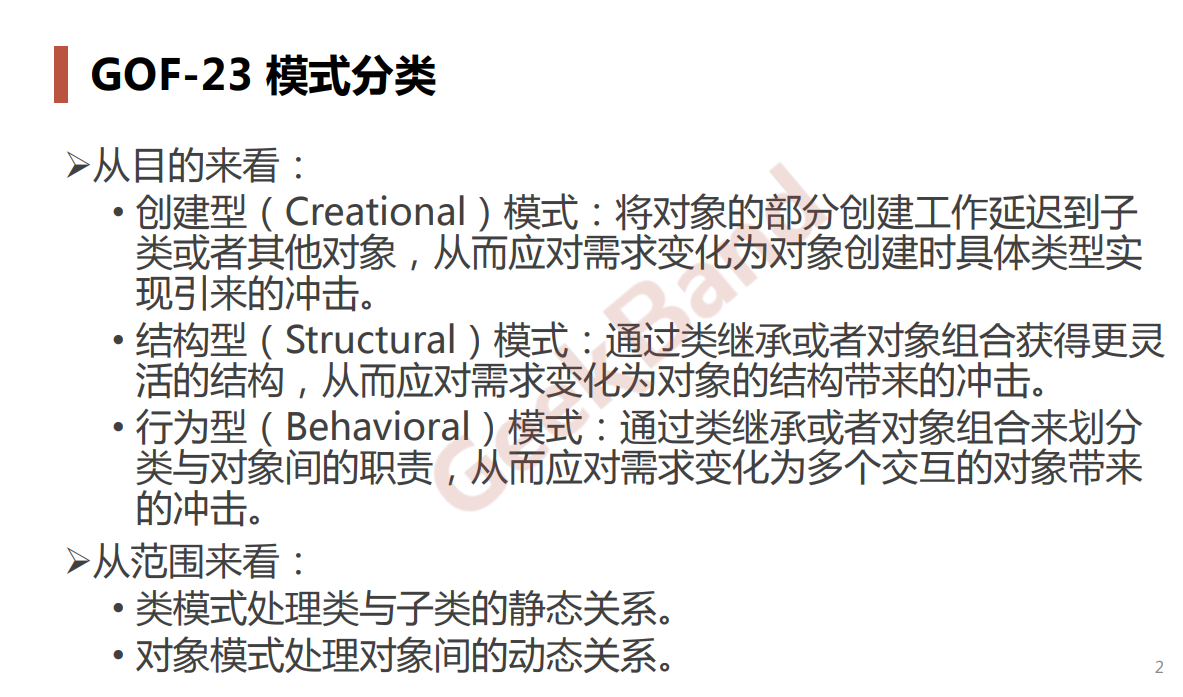
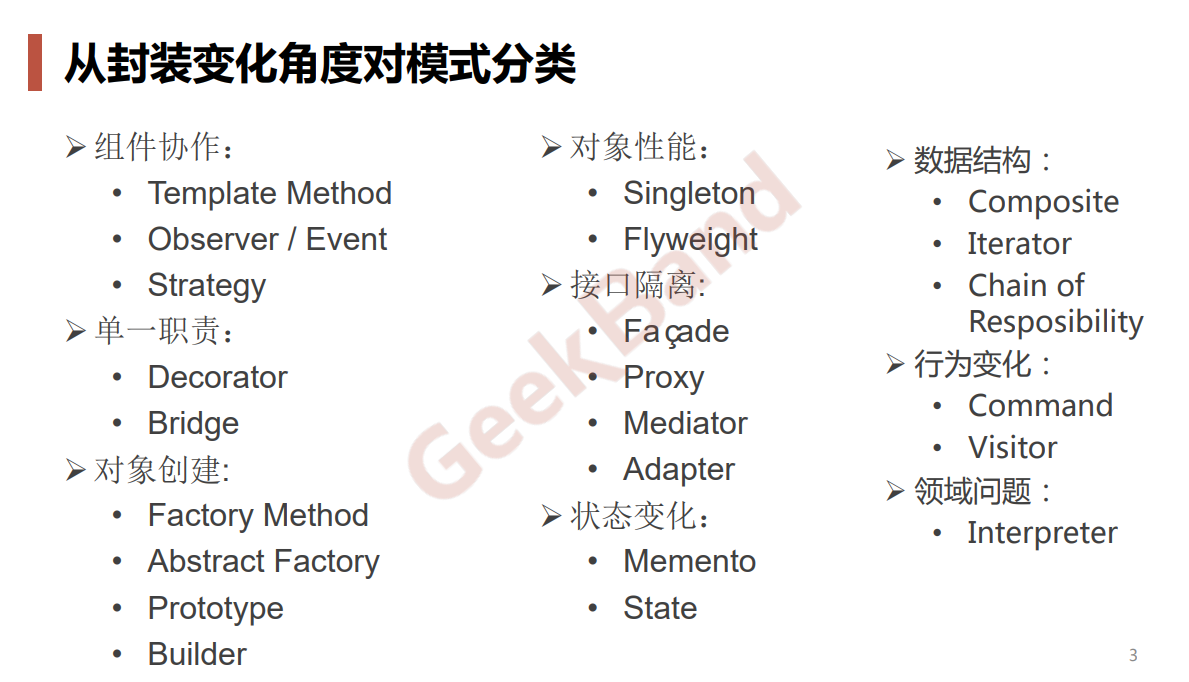
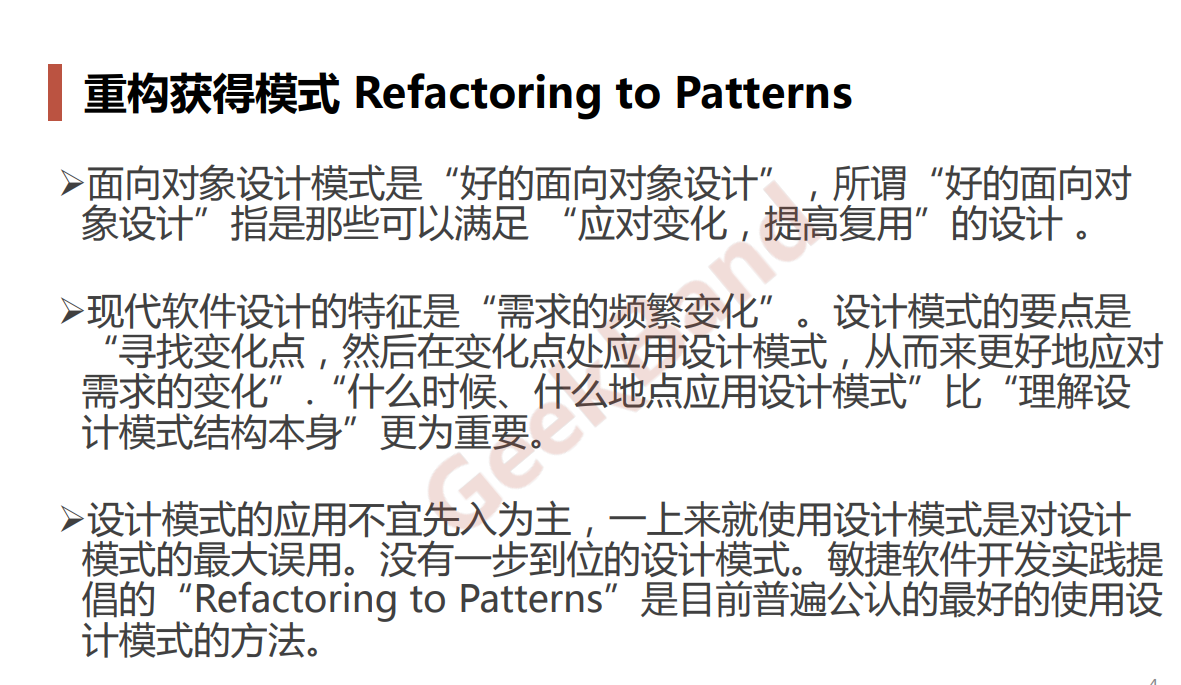

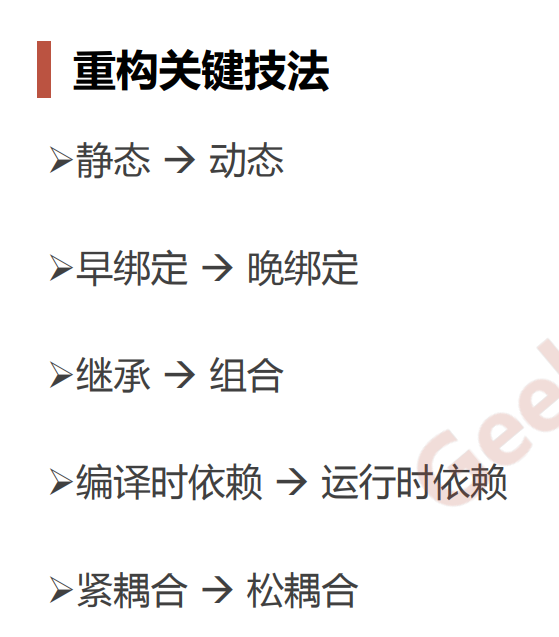
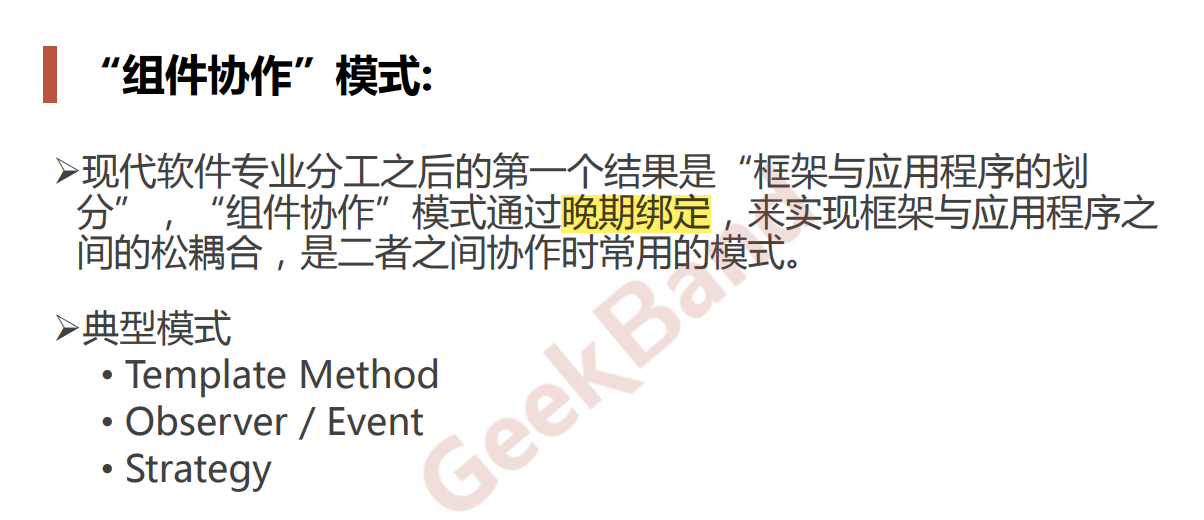
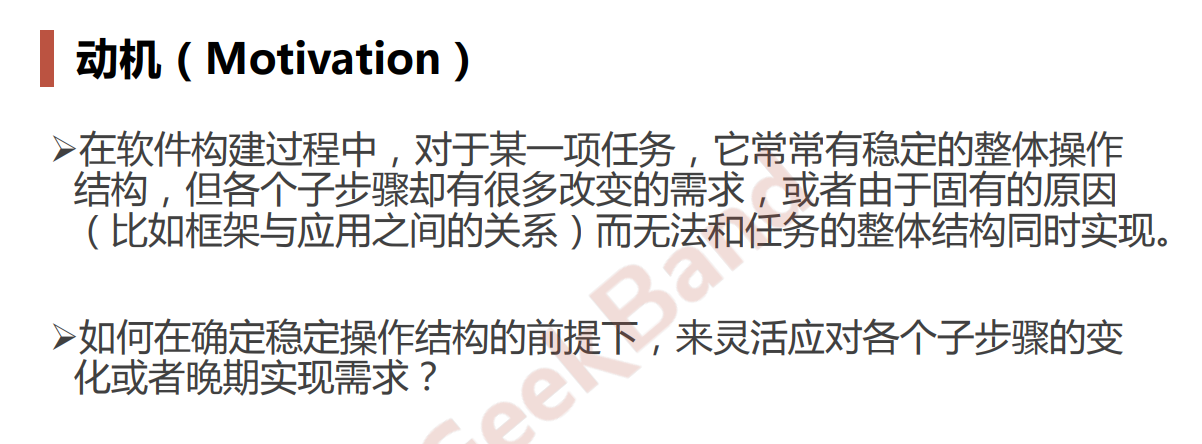
Early binding
The method here does not use template_method
template_lib.cpp
//Library developer
class Library{
public:
void Step1(){
//...
}
void Step3(){
//...
}
void Step5(){
//...
}
};
template_app.cpp
//Application Developer
class Application{
public:
bool Step2(){
//...
}
void Step4(){
//...
}
};
int main()
{
//Simulation program flow
Library lib();
Application app();
lib.Step1();
if (app.Step2()){
lib.Step3();
}
for (int i = 0; i < 4; i++){
app.Step4();
}
lib.Step5();
}
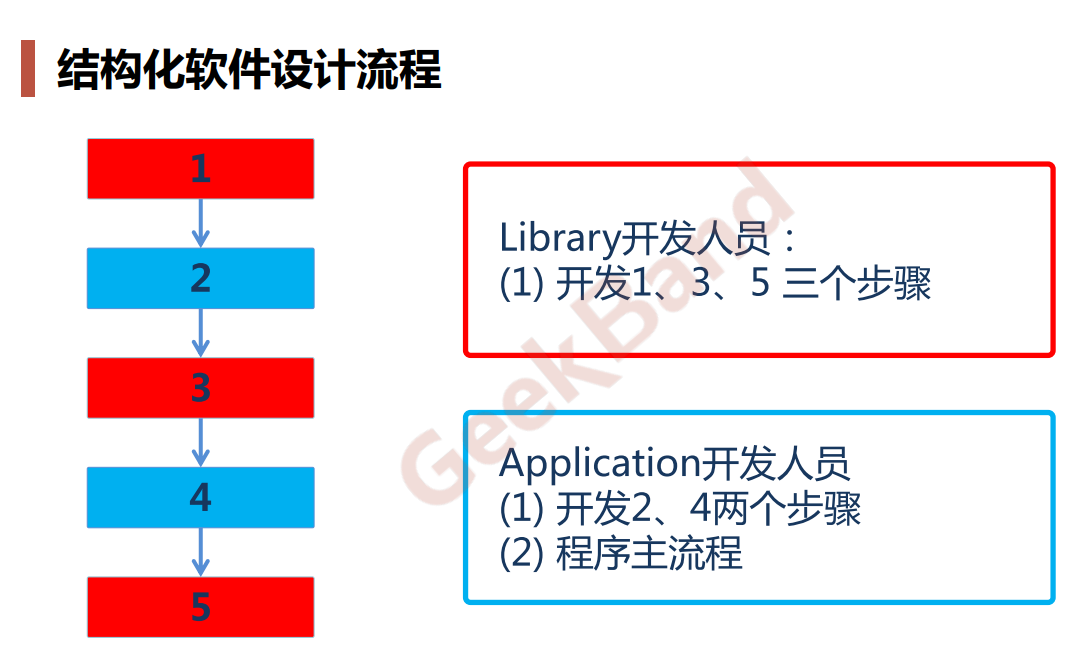
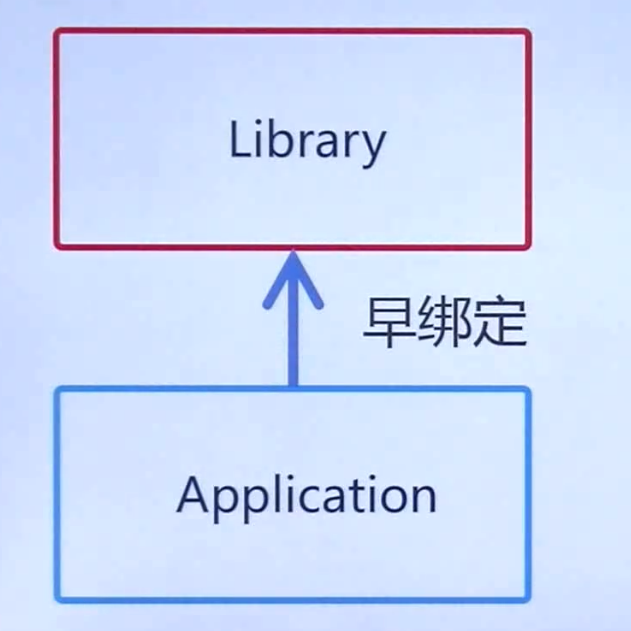
A late thing calls an early thing is an early binding
Late binding
Adopt the design pattern of template method - the premise is that you have a stable skeleton
The main flow of the program is relatively stable
template_lib.cpp
//Library developer
class Library{
public:
//Stable template method
void Run(){
Step1();
if (Step2()) { //Support polymorphic calling of variant = = > virtual functions
Step3();
}
for (int i = 0; i < 4; i++){
Step4(); //Support polymorphic calling of variant = = > virtual functions
}
Step5();
}
virtual ~Library(){ }//The destructor of the base class is written as virtual, because if you create a new subclass and you want to delete the subclass, if the fiction of the base class is not written as virtual, the subclass may not be able to call its own destructor
protected:
void Step1() { //stable
//.....
}
void Step3() {//stable
//.....
}
void Step5() { //stable
//.....
}
//Virtual functions support changes
virtual bool Step2() = 0;//change
virtual void Step4() =0; //change
};
template_app.cpp
//Application Developer
//Inherit the library for development
class Application : public Library {
protected:
virtual bool Step2(){
//... subclass override implementation
}
virtual void Step4() {
//... subclass override implementation
}
};
int main()
{
//Polymorphic pointer
Library* pLib=new Application();
lib->Run();//We will still follow the process here
delete pLib;//
}
}
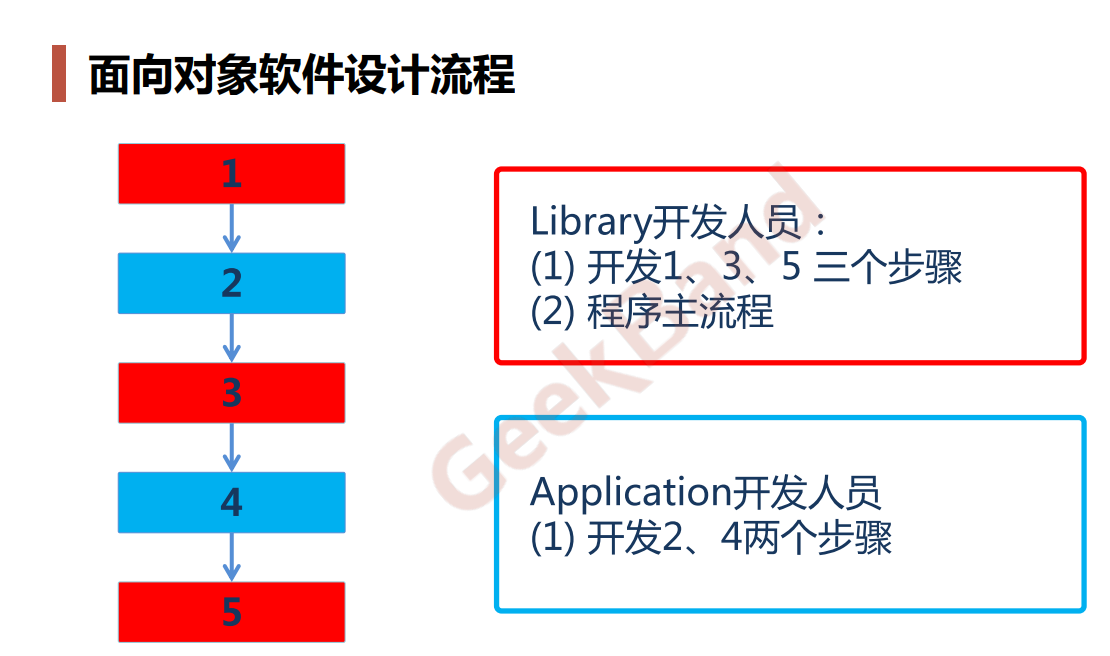
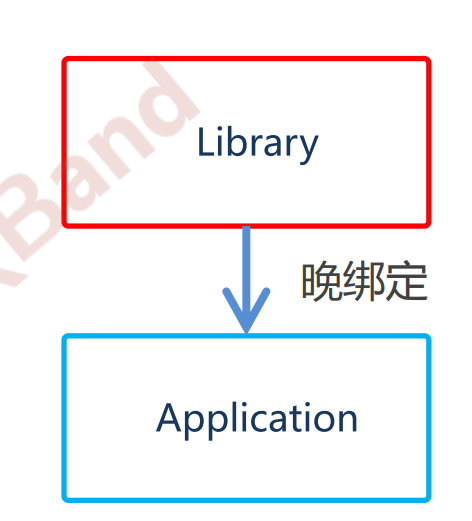
The early thing calls the late thing is the late binding
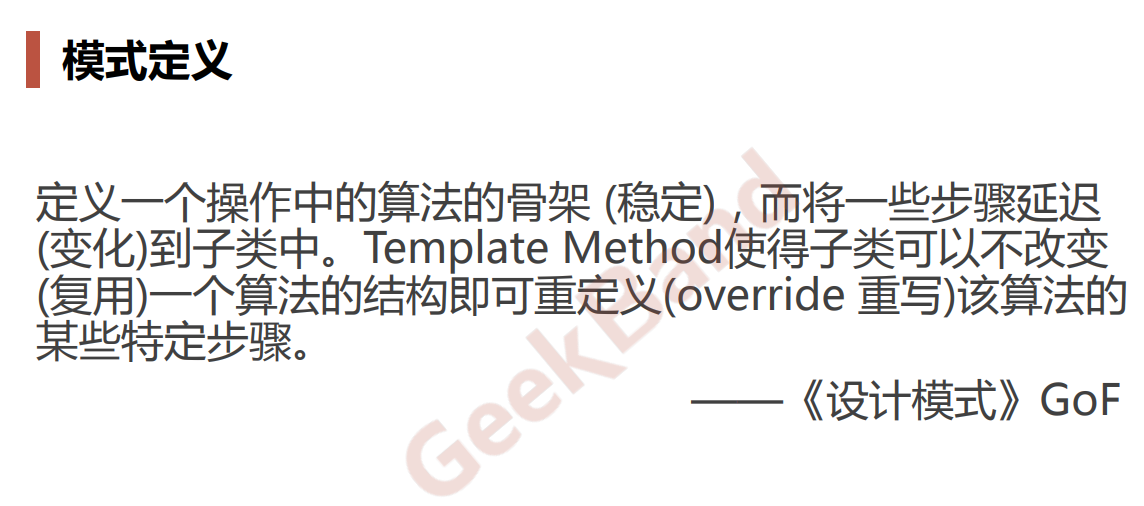
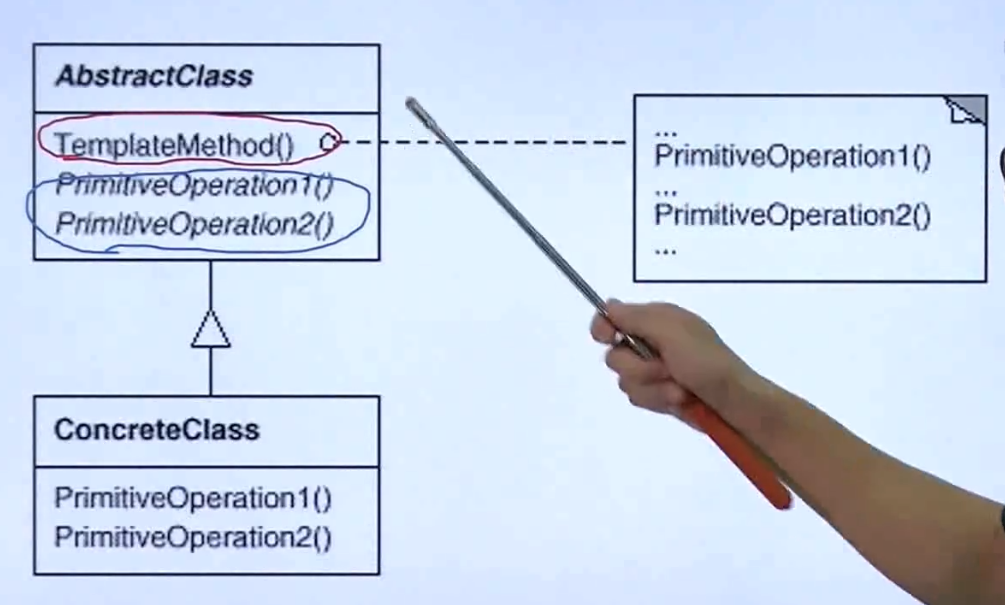
Red stands for stability
Blue represents instability
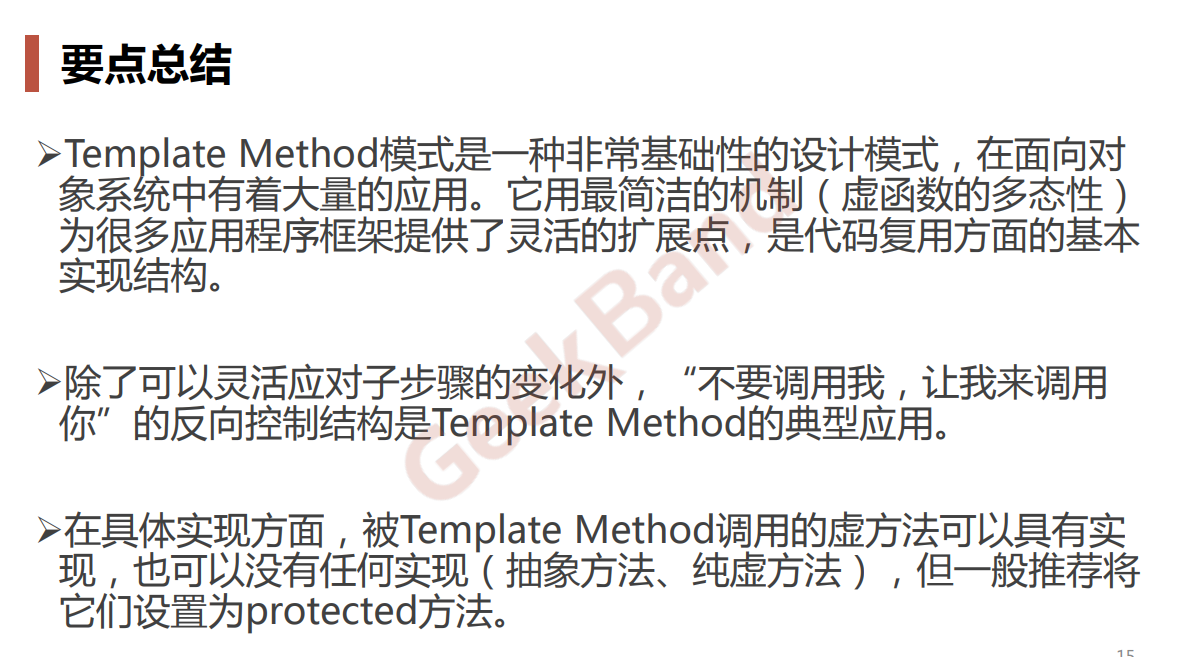
Strategy mode
Violation of opening and closing principle
enum TaxBase {
CN_Tax,
US_Tax,
DE_Tax,
FR_Tax //The change violates the opening and closing principle
};
class SalesOrder{
TaxBase tax;
public:
double CalculateTax(){
//...
if (tax == CN_Tax){
//CN***********
}
else if (tax == US_Tax){
//US***********
}
else if (tax == DE_Tax){
//DE***********
}
else if (tax == FR_Tax){ //change
//...
}
//....
}
};
There are many things to change here, and if else also consumes performance
Comply with the opening and closing principle
Strategy mode
class TaxStrategy{
public:
virtual double Calculate(const Context& context)=0;
virtual ~TaxStrategy(){}
};
class CNTax : public TaxStrategy{
public:
virtual double Calculate(const Context& context){
//***********
}
};
class USTax : public TaxStrategy{
public:
virtual double Calculate(const Context& context){
//***********
}
};
class DETax : public TaxStrategy{
public:
virtual double Calculate(const Context& context){
//***********
}
};
//The expansion meets the opening and closing principle
//*********************************
class FRTax : public TaxStrategy{
public:
virtual double Calculate(const Context& context){
//.........
}
};
class SalesOrder{
private:
TaxStrategy* strategy;//Polymorphic pointer
public:
SalesOrder(StrategyFactory* strategyFactory){
this->strategy = strategyFactory->NewStrategy();//Is a heap object returned by the factory China or the United States
}
~SalesOrder(){
delete this->strategy;
}
public double CalculateTax(){
//...
Context context();
double val =
strategy->Calculate(context); //The polymorphic call depends on which subclass object is returned by strategyfactory - > newstrategy()
//...
}
};
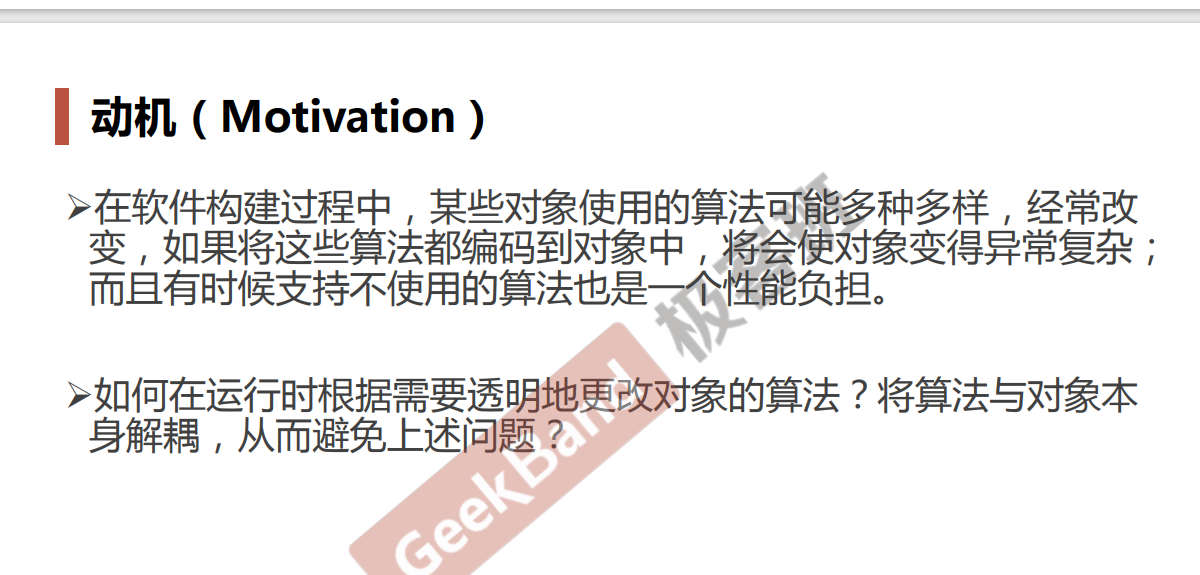
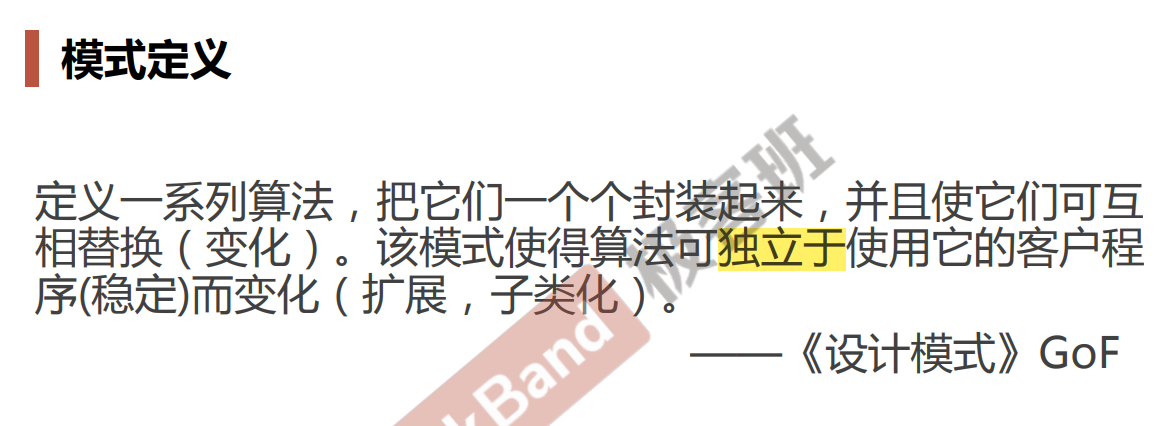
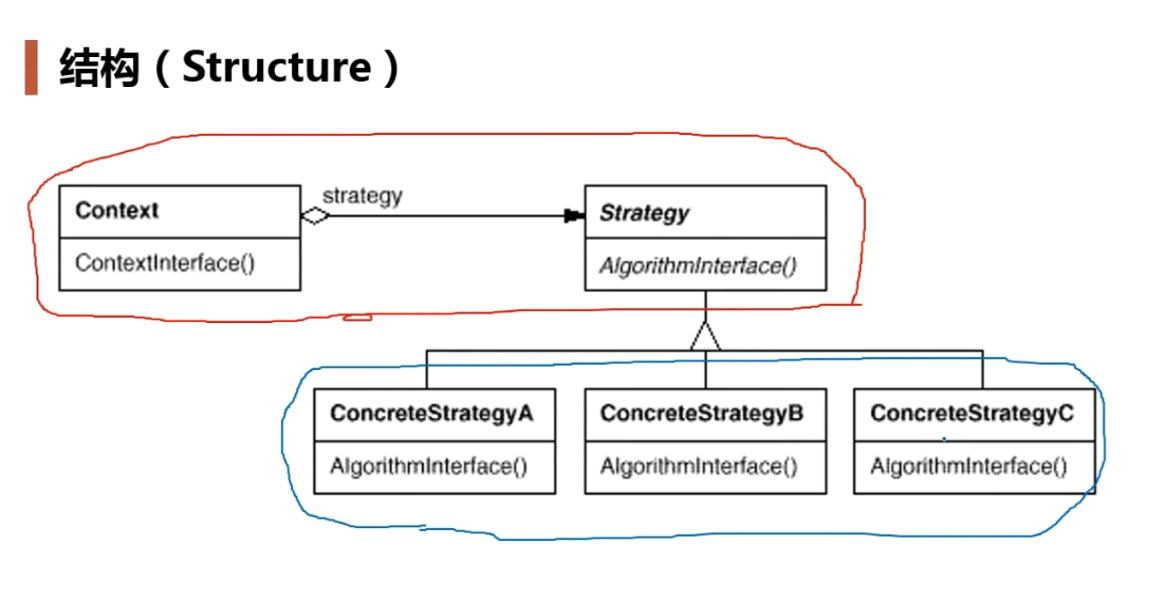
The red remains stable and the blue changes

Observer mode
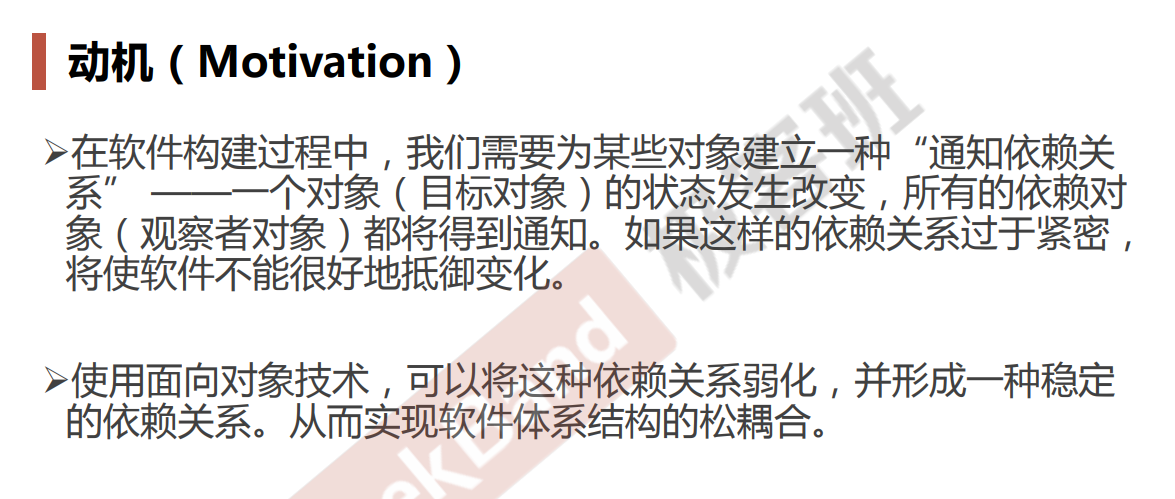
1, Observer mode is not used
Look at the code
FileSplitter.cpp
class FileSplitter
{
string m_filePath;
int m_fileNumber;
ProgressBar* m_progressBar;// Notification control here, what if we don't want to notify the progress in the form of progress bar, but want to present the situation in percentage? Isn't it hard to change
public:
FileSplitter(const string& filePath, int fileNumber, ProgressBar* progressBar) :
m_filePath(filePath),
m_fileNumber(fileNumber),
m_progressBar(progressBar){
}
void split(){
//1. Read large files
//2. Write to small files in batches
for (int i = 0; i < m_fileNumber; i++){
//...
//separate
if (m_progressBar != nullptr)
{
float progressValue = m_fileNumber;
progressValue = (i + 1) / progressValue;
m_progressBar->setValue(progressValue);//Update progress bar
}
}
}
};
MainForm.cpp
class MainForm : public Form
{
TextBox* txtFilePath;
TextBox* txtFileNumber;
ProgressBar* progressBar;
public:
void Button1_Click(){
string filePath = txtFilePath->getText();
int number = atoi(txtFileNumber->getText().c_str());
FileSplitter splitter(filePath, number, progressBar);
splitter.split();
}
};
2, The observer design pattern is used
FileSplitter.cpp
class IProgress{
public:
virtual void DoProgress(float value)=0;
virtual ~IProgress(){}
};
class FileSplitter
{
string m_filePath;
int m_fileNumber;
//ProgressBar* m_progressBar;// Notification control tight coupling
List<IProgress*> m_iprogressList; // Abstract notification mechanism, supporting loose coupling of multiple observers (with addIProgress and removeIProgress)
public:
FileSplitter(const string& filePath, int fileNumber) :
m_filePath(filePath),
m_fileNumber(fileNumber){
}
void split(){
//1. Read large files
//2. Write to small files in batches
for (int i = 0; i < m_fileNumber; i++){
//...
float progressValue = m_fileNumber;
progressValue = (i + 1) / progressValue;
onProgress(progressValue);//Send notification
}
}
//Join IProgress
void addIProgress(IProgress* iprogress){
m_iprogressList.push_back(iprogress);
}
//Delete IProgress
void removeIProgress(IProgress* iprogress){
m_iprogressList.remove(iprogress);
}
protected:
virtual void onProgress(float value){
List<IProgress*>::iterator itor=m_iprogressList.begin();
while (itor != m_iprogressList.end() )
(*itor)->DoProgress(value); //The update progress bar is selected according to the specific category of tor
itor++;
}
}
};
MainForm.cpp
//Adopt one to many observer mode
//If we want to make the notification space in the form of percentage, we can define another class to accept the percentage information, then define an object of this class in the mainform class, and then add to m_iprogressList
class MainForm : public Form, public IProgress
{
TextBox* txtFilePath;
TextBox* txtFileNumber;
ProgressBar* progressBar;
public:
void Button1_Click(){
string filePath = txtFilePath->getText();
int number = atoi(txtFileNumber->getText().c_str());
ConsoleNotifier cn;
CirclePercent cp;
FileSplitter splitter(filePath, number);
splitter.addIProgress(this); //Subscription notification
splitter.addIProgress(&cn); //Subscription notification
splitter.addIProgress(&cp); //Subscription notification
splitter.split();
splitter.removeIProgress(this);
}
virtual void DoProgress(float value){
progressBar->setValue(value);
}
};
class ConsoleNotifier : public IProgress {
public:
virtual void DoProgress(float value){
cout << ".";
}
};
//Here is the display percentage added by yourself. If the windows interface already has a component in the form of disk percentage
class CirclePercent:public IProgress {
CirclePanelPercent* circlePanelPercent;
public:
virtual void DoProgress(float value) {
circlePanelPercent->setvalue(value);
}
};
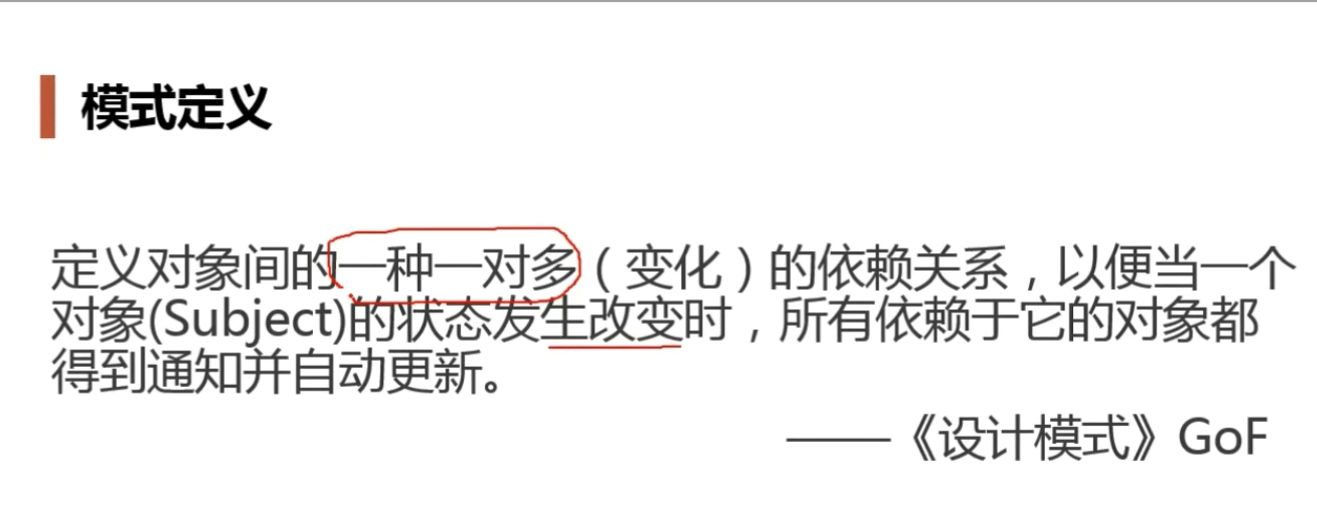
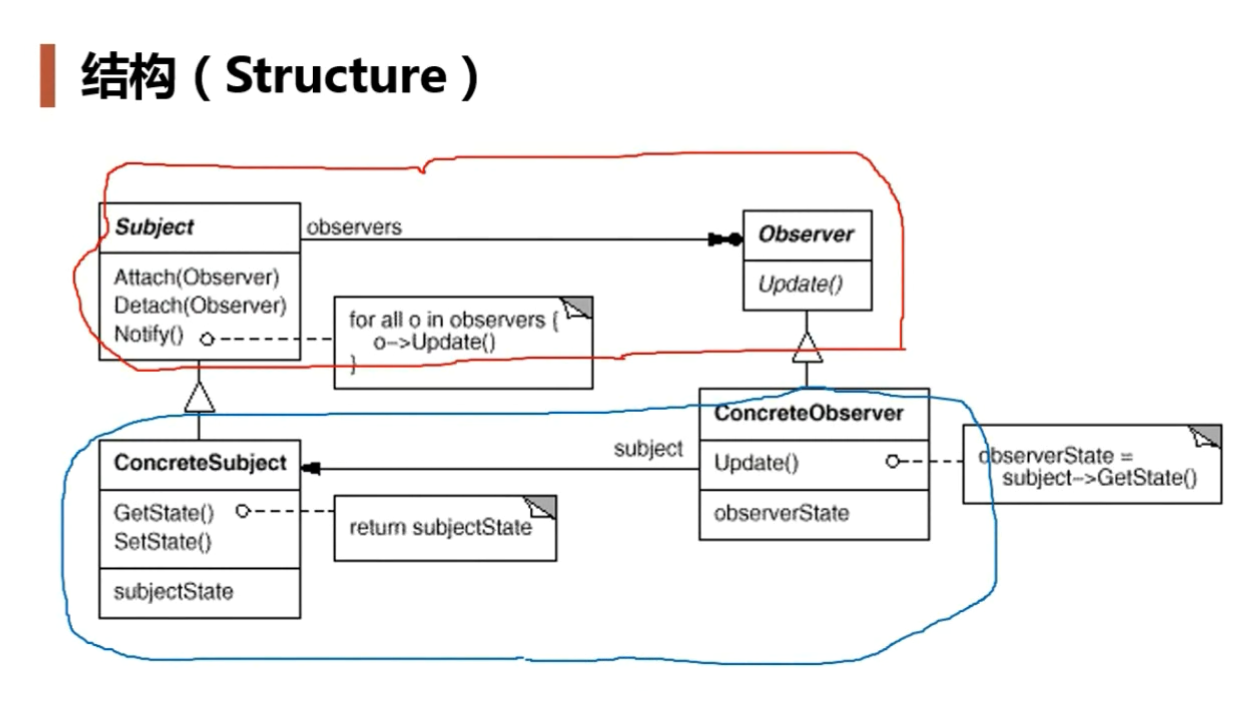
The red part is the stable part and the dependent part. The blue is the part that changed
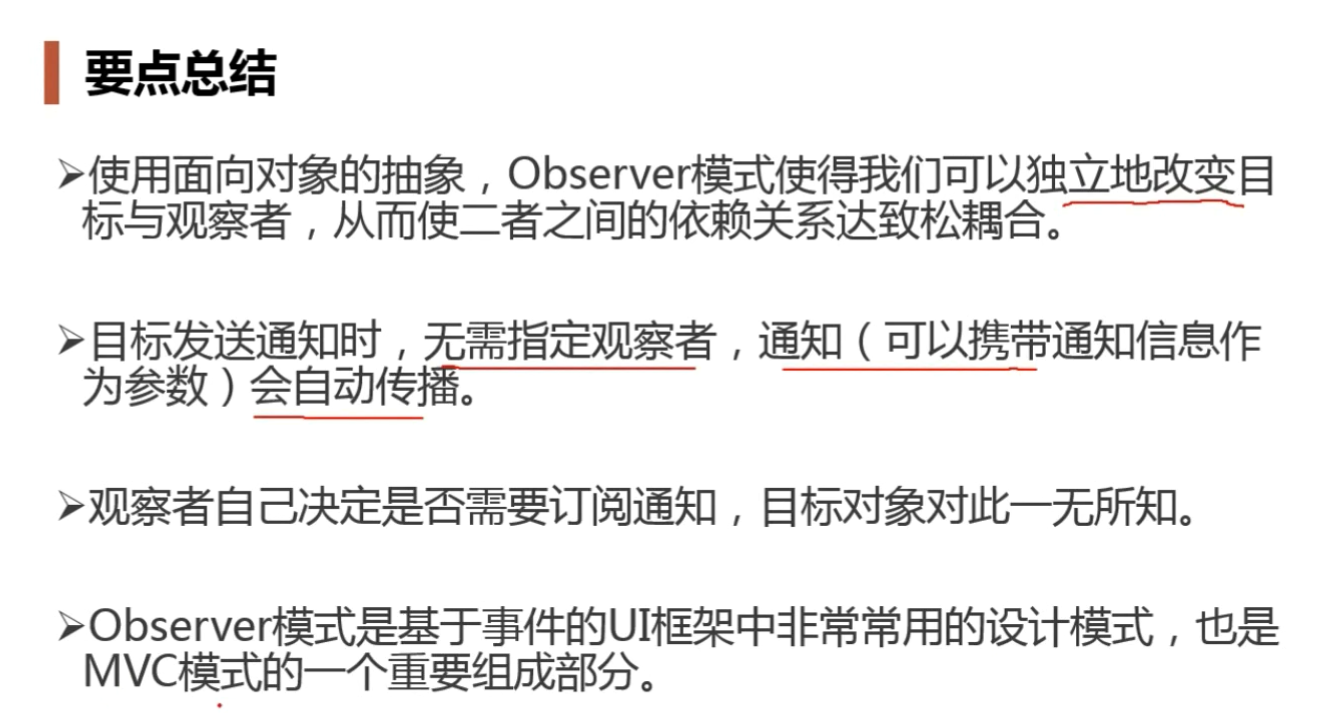
Decoration mode
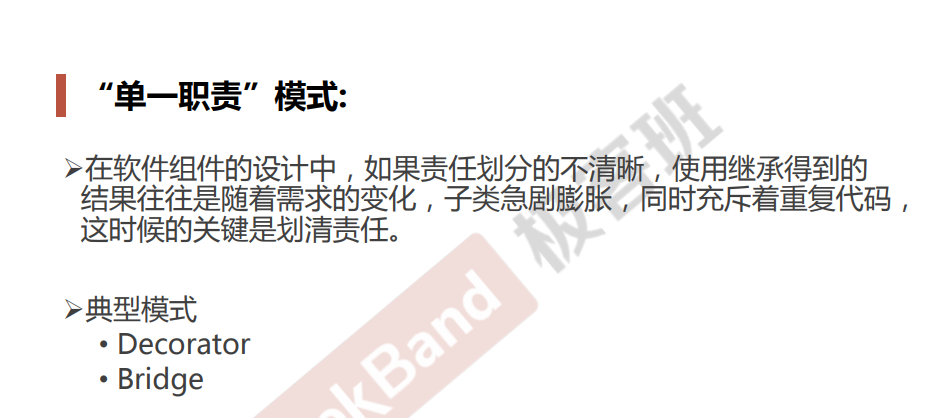
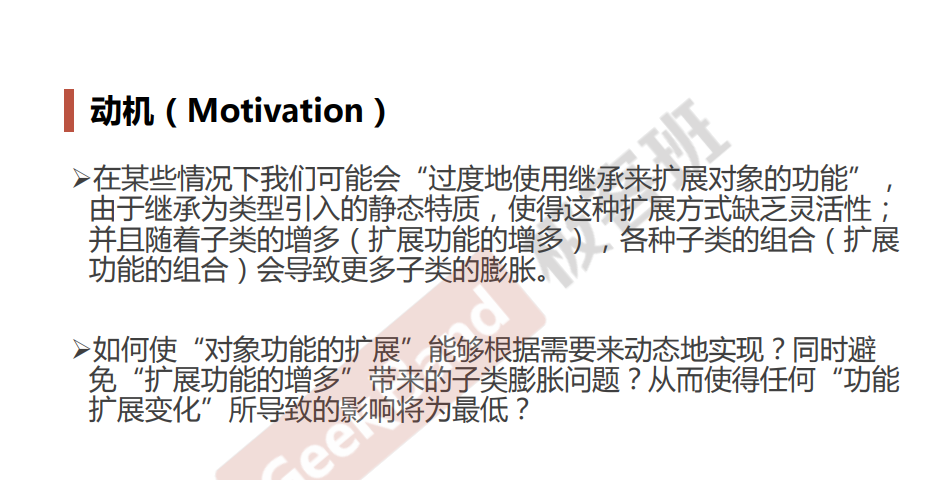
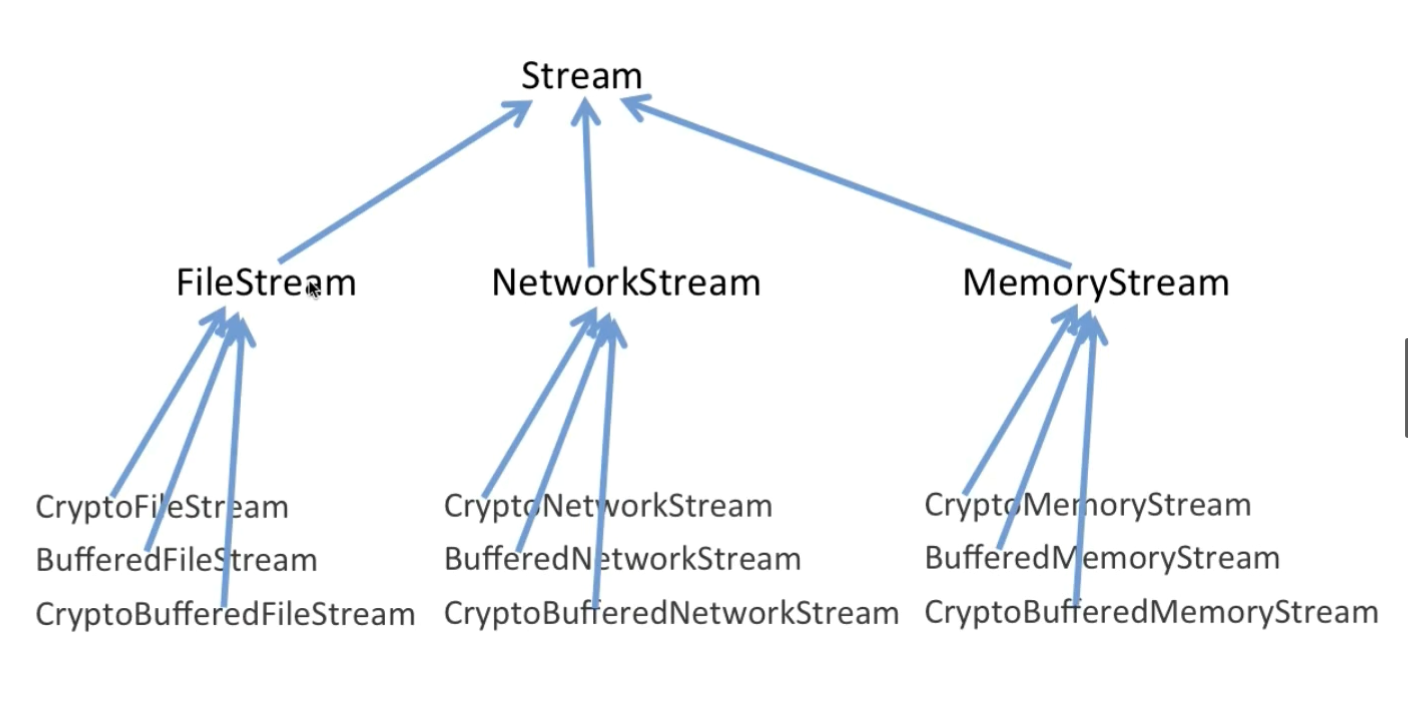
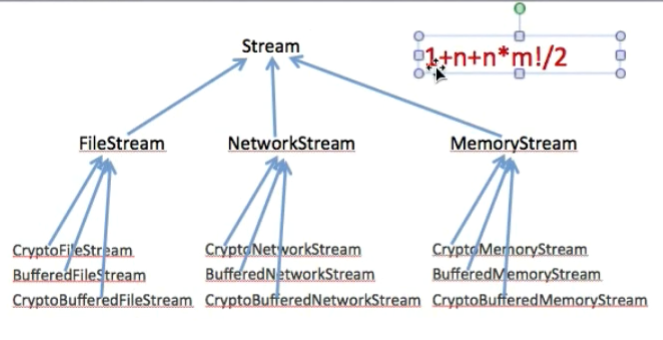
For extension operations, it can be encrypted or buffered. If m extension operations are added, the total combination is (m+m-1 +... + 1) / 2, m > 2, and n represents the type of file stream.
decorator1.cpp
//Business operation
class Stream{
public:
virtual char Read(int number)=0;
virtual void Seek(int position)=0;
virtual void Write(char data)=0;
virtual ~Stream(){}
};
//Principal class
class FileStream: public Stream{
public:
virtual char Read(int number){
//Read file stream
}
virtual void Seek(int position){
//Locate file stream
}
virtual void Write(char data){
//Write file stream
}
};
class NetworkStream :public Stream{
public:
virtual char Read(int number){
//Read network flow
}
virtual void Seek(int position){
//Location network flow
}
virtual void Write(char data){
//Write network stream
}
};
class MemoryStream :public Stream{
public:
virtual char Read(int number){
//Read memory stream
}
virtual void Seek(int position){
//Locate memory stream
}
virtual void Write(char data){
//Write memory stream
}
};
//Extended operation
class CryptoFileStream :public FileStream{
public:
virtual char Read(int number){
//Additional encryption operations
FileStream::Read(number);//Read file stream
}
virtual void Seek(int position){
//Additional encryption operations
FileStream::Seek(position);//Locate file stream
//Additional encryption operations
}
virtual void Write(byte data){
//Additional encryption operations
FileStream::Write(data);//Write file stream
//Additional encryption operations
}
};
class CryptoNetworkStream : :public NetworkStream{
public:
virtual char Read(int number){
//Additional encryption... The code is repeated here
NetworkStream::Read(number);//Read network flow
}
virtual void Seek(int position){
//Additional encryption... The code is repeated here
NetworkStream::Seek(position);//Location network flow
//Additional encryption operations
}
virtual void Write(byte data){
//Additional encryption... The code is repeated here
NetworkStream::Write(data);//Write network stream
//Additional encryption operations
}
};
class CryptoMemoryStream : public MemoryStream{
public:
virtual char Read(int number){
//Additional encryption... The code is repeated here
MemoryStream::Read(number);//Read memory stream
}
virtual void Seek(int position){
//Additional encryption... The code is repeated here
MemoryStream::Seek(position);//Locate memory stream
//Additional encryption operations
}
virtual void Write(byte data){
//Additional encryption... The code is repeated here
MemoryStream::Write(data);//Write memory stream
//Additional encryption operations
}
};
class BufferedFileStream : public FileStream{
//...
};
class BufferedNetworkStream : public NetworkStream{
//...
};
class BufferedMemoryStream : public MemoryStream{
//...
}
class CryptoBufferedFileStream :public FileStream{
public:
virtual char Read(int number){
//Additional encryption operations
//Additional buffering operations
FileStream::Read(number);//Read file stream
}
virtual void Seek(int position){
//Additional encryption operations
//Additional buffering operations
FileStream::Seek(position);//Locate file stream
//Additional encryption operations
//Additional buffering operations
}
virtual void Write(byte data){
//Additional encryption operations
//Additional buffering operations
FileStream::Write(data);//Write file stream
//Additional encryption operations
//Additional buffering operations
}
};
void Process(){
//Compile fashion accessories
CryptoFileStream *fs1 = new CryptoFileStream();
BufferedFileStream *fs2 = new BufferedFileStream();
CryptoBufferedFileStream *fs3 =new CryptoBufferedFileStream();
}
You can see that there is a lot of redundant code above
decorator2.cpp
Eliminate redundancy by polymorphism (combined mode)
//Business operation
//Eliminating redundancy using polymorphism
class Stream{
public:
virtual char Read(int number)=0;
virtual void Seek(int position)=0;
virtual void Write(char data)=0;
virtual ~Stream(){}
};
//Principal class
class FileStream: public Stream{
public:
virtual char Read(int number){
//Read file stream
}
virtual void Seek(int position){
//Locate file stream
}
virtual void Write(char data){
//Write file stream
}
};
class NetworkStream :public Stream{
public:
virtual char Read(int number){
//Read network flow
}
virtual void Seek(int position){
//Location network flow
}
virtual void Write(char data){
//Write network stream
}
};
class MemoryStream :public Stream{
public:
virtual char Read(int number){
//Read memory stream
}
virtual void Seek(int position){
//Locate memory stream
}
virtual void Write(char data){
//Write memory stream
}
};
//The extension operation refers to the reading and positioning of various types of files
class CryptoStream: public Stream {//The purpose of inheriting stream here is to improve the specification of the interface
Stream* stream;//...
public:
CryptoStream(Stream* stm):stream(stm){
}
virtual char Read(int number){
//Additional encryption operations
stream->Read(number);//Read file stream
}
virtual void Seek(int position){
//Additional encryption operations
stream::Seek(position);//Locate file stream
//Additional encryption operations
}
virtual void Write(byte data){
//Additional encryption operations
stream::Write(data);//Write file stream
//Additional encryption operations
}
};
class BufferedStream : public Stream{
Stream* stream;//...
public:
BufferedStream(Stream* stm):stream(stm){
}
//...
};
void Process(){
//Running fashion
FileStream* s1=new FileStream();
CryptoStream* s2=new CryptoStream(s1);
BufferedStream* s3=new BufferedStream(s1);//Caching of file streams
BufferedStream* s4=new BufferedStream(s2);//Encryption and caching of file streams
}
decorator3.cpp
Further improvement
//Business operation
class Stream{
public:
virtual char Read(int number)=0;
virtual void Seek(int position)=0;
virtual void Write(char data)=0;
virtual ~Stream(){}
};
//Principal class
class FileStream: public Stream{
public:
virtual char Read(int number){
//Read file stream
}
virtual void Seek(int position){
//Locate file stream
}
virtual void Write(char data){
//Write file stream
}
};
class NetworkStream :public Stream{
public:
virtual char Read(int number){
//Read network flow
}
virtual void Seek(int position){
//Location network flow
}
virtual void Write(char data){
//Write network stream
}
};
class MemoryStream :public Stream{
public:
virtual char Read(int number){
//Read memory stream
}
virtual void Seek(int position){
//Locate memory stream
}
virtual void Write(char data){
//Write memory stream
}
};
//Extended operation
DecoratorStream: public Stream{
protected:
Stream* stream;//...
DecoratorStream(Stream * stm):stream(stm){
}
};
class CryptoStream: public DecoratorStream {
public:
CryptoStream(Stream* stm):DecoratorStream(stm){
}
virtual char Read(int number){
//Additional encryption operations
stream->Read(number);//Read file stream
}
virtual void Seek(int position){
//Additional encryption operations
stream::Seek(position);//Locate file stream
//Additional encryption operations
}
virtual void Write(byte data){
//Additional encryption operations
stream::Write(data);//Write file stream
//Additional encryption operations
}
};
class BufferedStream : public DecoratorStream{
Stream* stream;//...
public:
BufferedStream(Stream* stm):DecoratorStream(stm){
}
//...
};
void Process(){
//Running fashion
FileStream* s1=new FileStream();
CryptoStream* s2=new CryptoStream(s1);
BufferedStream* s3=new BufferedStream(s1);
BufferedStream* s4=new BufferedStream(s2);
}
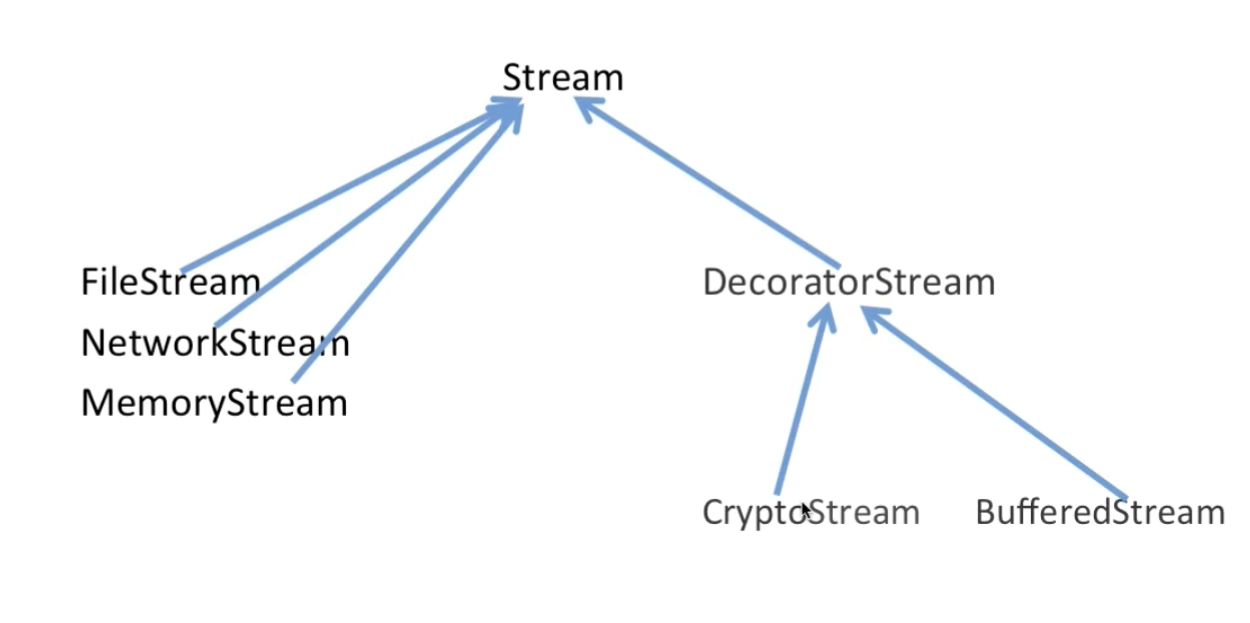
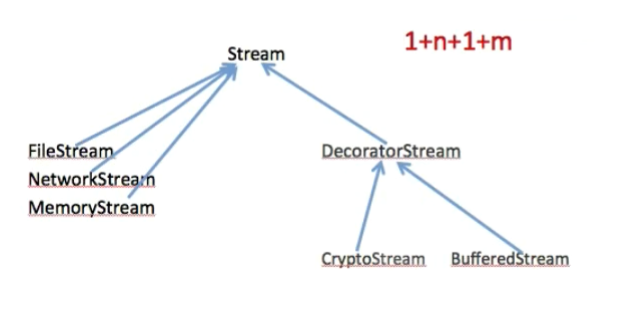
The body and extension should be separated
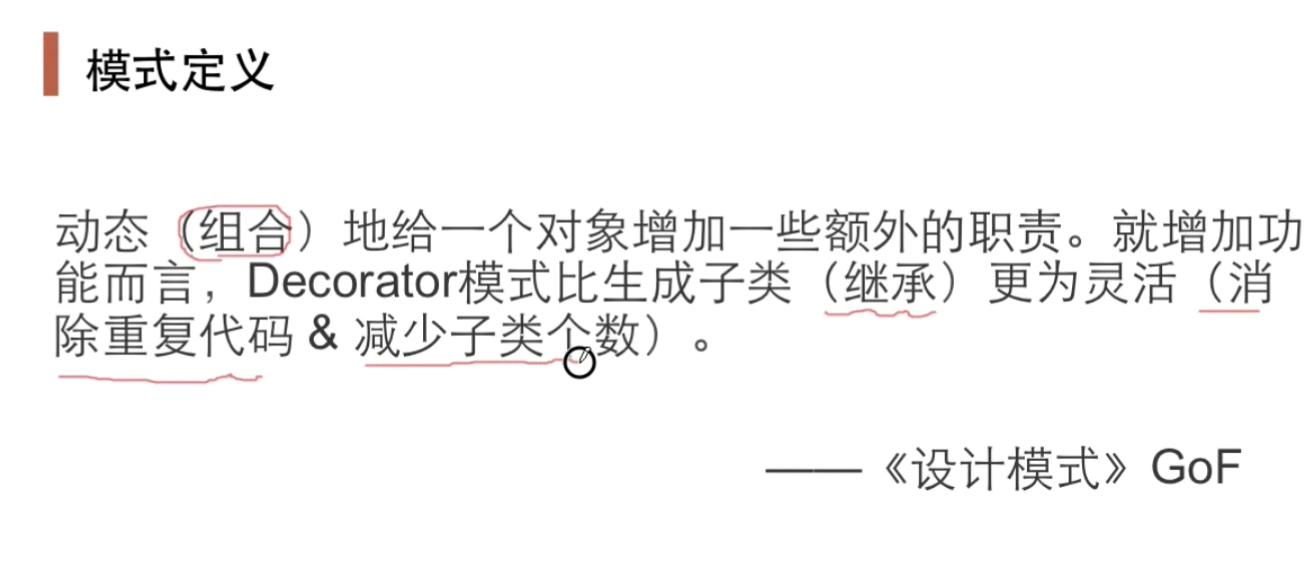
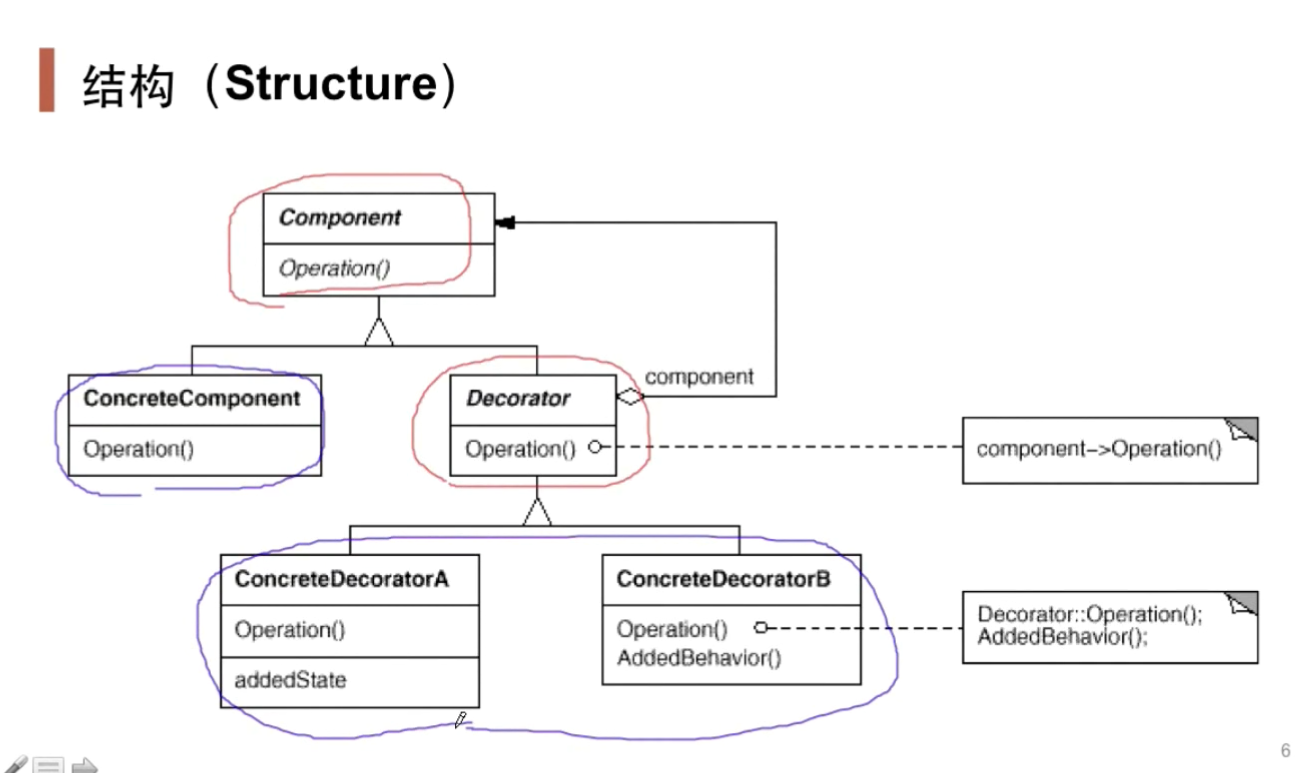 Red represents the stable part and blue represents the changing part
Red represents the stable part and blue represents the changing part
